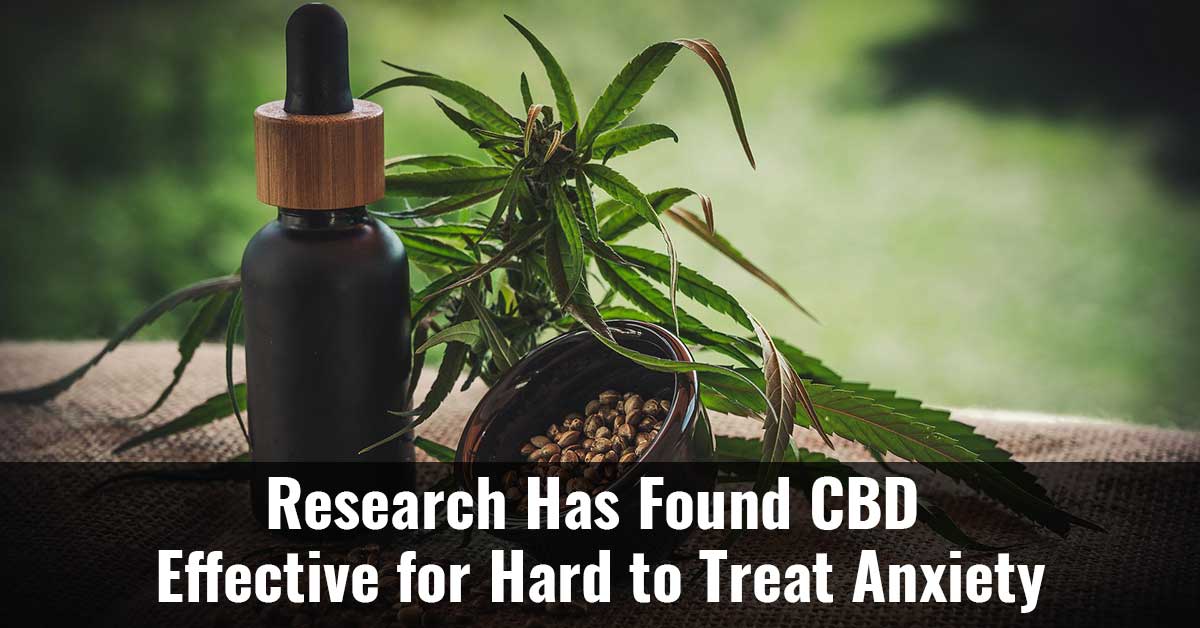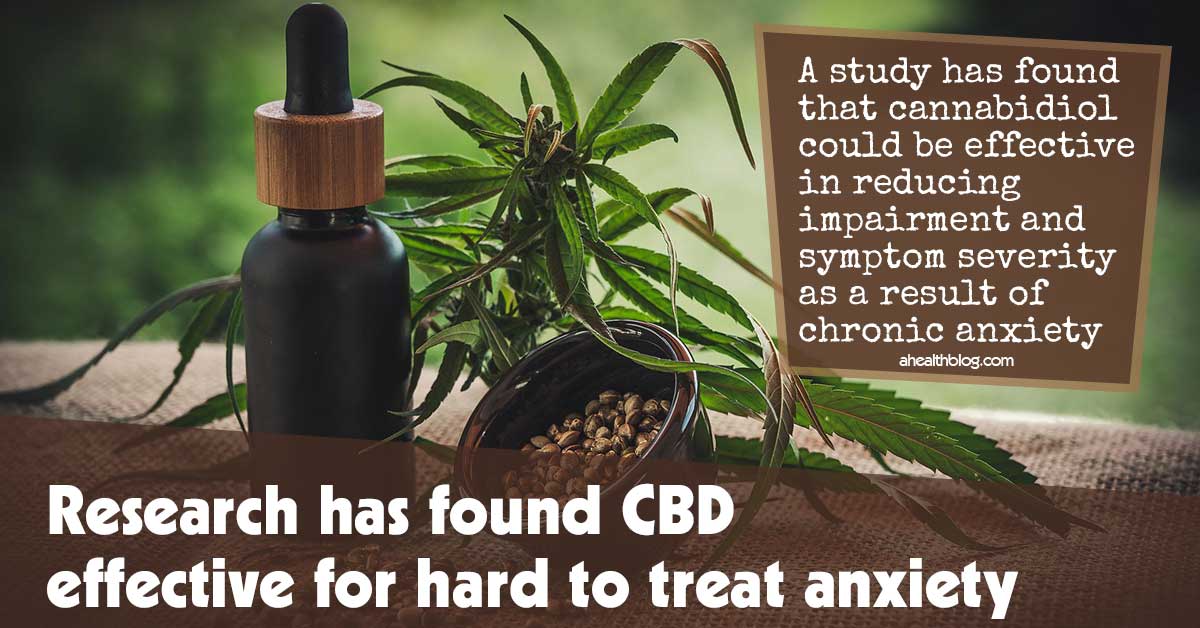A study has found that cannabidiol could be effective in reducing impairment and symptom severity as a result of chronic anxiety.1✅ JOURNAL REFERENCE
DOI: 10.4088/JCP.21m14130
The study observed that young individuals with anxiety that was resistant to treatment had a 42.6% reduction in impairment and anxiety severity on average after being treated for 12 weeks with cannabidiol, a Cannabis sativa component that’s not intoxicating which is typically known as CBD.
The study participants had fewer panic attacks and could perform functions that they were unable to do before such as attending appointments by themselves, using public transport, eating at restaurants, participating in social situations, going to school, or leaving the house. That’s a remarkable change for these individuals who had severe to extremely severe treatment-resistant anxiety for a long time.
The symptom reduction was seen on 2 different scales: a 50.7% reduction in a clinician-rated scale known as the Hamilton Anxiety Rating, and a 42.6% reduction in a self-rated scale, which consisted of a symptom questionnaire that included situational anxieties, panic attacks, flashbacks, and worries.
The study involved 31 individuals between the ages of 12 and 25 with an anxiety disorder diagnosis and who had failed to exhibit significant improvement in the severity of anxiety after a minimum of 5 cognitive behavioral therapy sessions.
Anxiety disorders are characterized by persistent feelings of anxiety, that may have no obvious cause or reason. These feelings can be difficult to control for individuals suffering from anxiety. Although anxiety is a common response to a situation where we feel under pressure, if this anxiety persists or happens suddenly in the absence of a stimulus, it can be disabling and may require treatment or support.
Although some individuals may suffer only mild anxiety, more severe anxiety generally interferes with a person’s life and can be linked to trembling, sweating, heart palpitations, feeling detached from oneself, panic, chest pain, or breathlessness.
Psychiatric or neurological manifestations are not induced by cannabidiol nor are there any major side effects. It’s non-intoxicating and THC-free so there are no changes in perception and thinking, with no ‘high’ and it’s not addictive.
The starting dose in the study was one daily 200mg cannabidiol capsule, which was increased after a week to 400mg. Individuals not showing significant improvement in symptoms of anxiety increased daily dosages at increments of 200mg to up to 800mg. All individuals were offered 5 biweekly cognitive behavioral therapy sessions for 12 weeks.
The study revealed that cannabidiol helped in reducing symptoms of anxiety as well as well tolerated with the most typical side-effects being mild fatigue and sedation but that was when dosages were increased and normally disappeared after 1 or 2 days.




